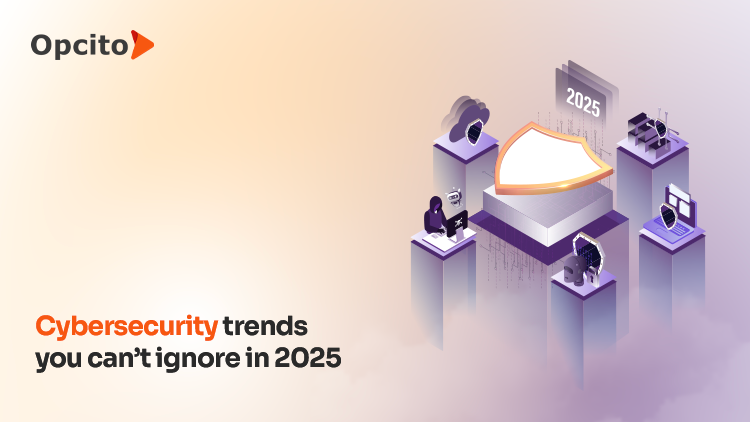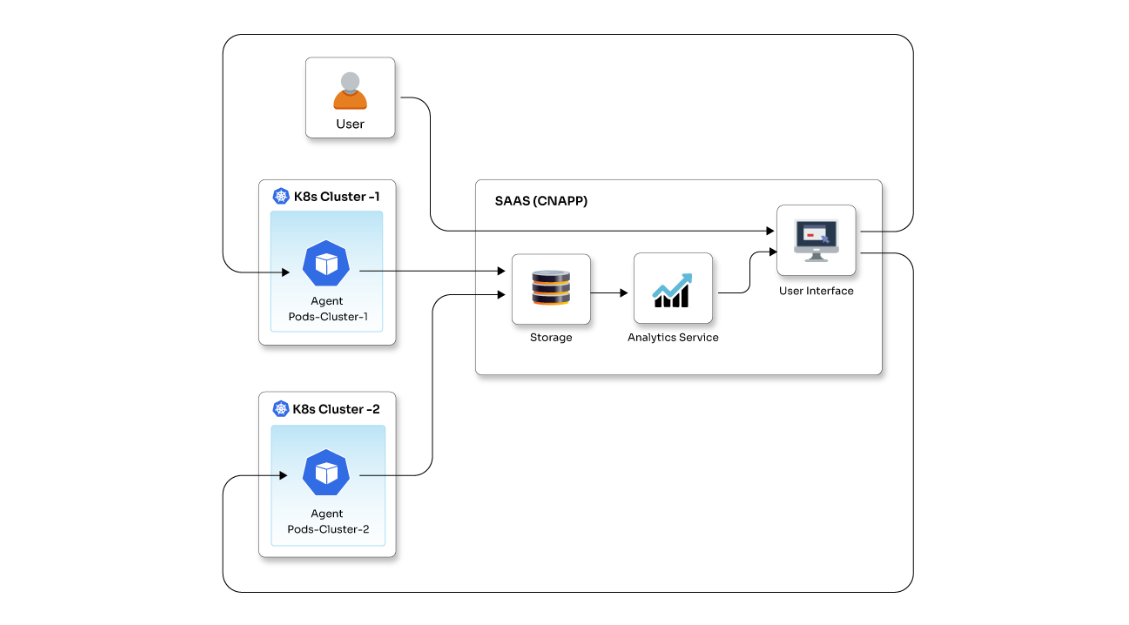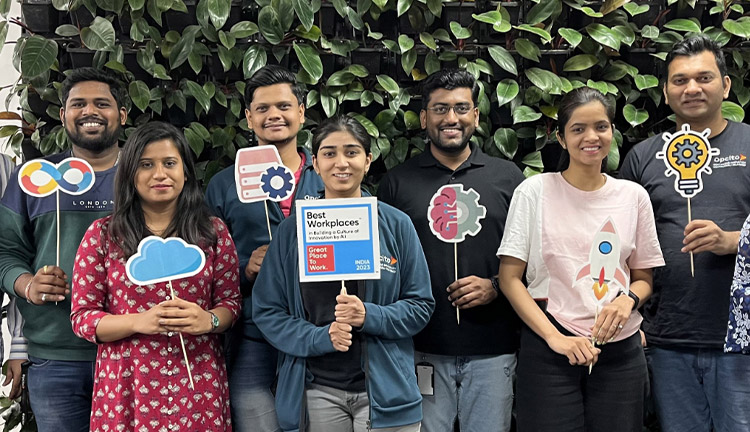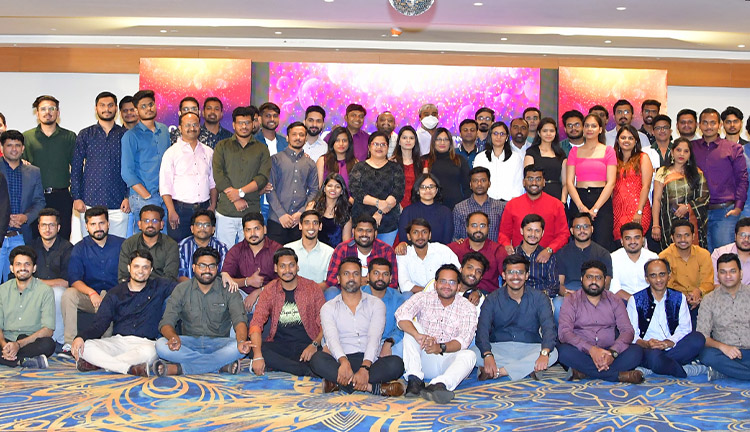Redefining development in the pandemic with DevOps
COVID-19 has significantly impacted the global business landscape. The tech domain is no exception to it. The disruption has forced many of us to adopt the remote working culture. Almost all the business units of tech industries are, in some or the other way, getting affected by it. Canceled events and face-to-face meetings with prospects have disrupted business development opportunities. Even the recruitment process has slowed down, which is affecting the pipeline of knowledgeable individuals. The security aspects are also under scrutiny because most of the workforce is working remotely.
With the sudden surge in COVID-19 cases worldwide, many governments have issued work-from-home guidelines. The tech industry is trying its best to cope with the new normal in the best possible ways to reduce COVID-19 impacts. Developing products to ease the current situation and working on different methods to monitor the virus's spread continuously are some of these measures. Virtual communication tools have become a vital commodity for organizations. It is visible that the business houses that were already embracing digital transformation are less affected by the pandemic's impact.
The present unstable economic scenario demands organizations to achieve more by working within certain limits. Organizations have no other option but to produce more results in fewer resources with a negligible margin for errors. One such methodology or cultural change is DevOps. The need to break down silos amongst the teams, continuous automation, and cross-team collaboration for the businesses to operate remotely increases the demand for DevOps in the COVID times.
Changing DevOps role in the current pandemic
Flexibility, agility, and commitment to providing a more comprehensive range of services are the things that most organizations are looking for in the present scenario. There is a need for a development culture that will enable continuous changes in the development and integration process to add the characteristics above in your applications and services in the current situation. And DevOps is one such cultural change. Let's explore in detail how DevOps can play a vital role in the current pandemic:
- Continuous delivery to achieve better flexibility: Developers naturally want unrestricted workflow and continuous collaboration with peers. This requirement remains unchanged or rather becomes more vital in the remote working scenario. And DevOps is known for its speed and flexibility. When it comes to continuous delivery, DevOps follows particular methods like submitting code to the software multiple times, having a precise deployment pipeline, and ensuring the application source code that is always ready to deploy.
Without the CI/CD pipeline, it may take time to deploy continuous changes to your application because you might face some errors, security-related issues, lag times, or code freezing. The teams will be required to stop the ongoing work every time to resolve these bottlenecks. A simple solution to this is DevOps. The units can simultaneously work on multiple changes and other tasks, which will not only reduce the delivery time to the customers but will also help you to gain their trust. Altogether you don't have to stress over the integration and deployment part. And continuous delivery will ensure that the code keeps running and working correctly.
Since the outbreak, customers are consuming more digital services, and I believe that the traditional development methods are in no position to meet the growing demand. Thus, the answer to the ever-increasing digital services demand is continuous delivery.
-
Skillful separation of deployment and release: When the entire world is facing economic uncertainty, taking any risk that might affect your business won't be a good idea. Straightaway launching a new application or software towards the end of the development process might lead to losses. Thankfully, DevOps's ability to let you take the calculative risks can come in handy now more than ever. Due to its ability to separate your software's deployment and release, the chances of failure reduce automatically. Deployment in DevOps would be when the production team receives the workable code. That, too, won't be deployed right away. You can decide when the change or upgrade should reach the end user. Also, the end-user will receive seamless software to use throughout the release process.
The separation between production and release gives the developers the time and opportunity to carry out continuous experiments and work on new features and integrate them into production. You can get instant reports on how each element or a new feature is behaving in the production environment. And after carrying out multiple deployments to check the code is running correctly, you can release it.
-
Agile adoption for a holistic approach: Having a cross-functional software development approach and integrating different teams across your organization is essential and helps you achieve a holistic approach. This approach allows you to deliver valuable software products faster and build trust among customers. Placing your customers first makes them feel empowered.
DevOps does not follow a rigid hierarchical organizational structure. It rather empowers teams to make dynamic decisions and helps to create a customer-centric approach. During the pandemic, face-to-face interaction between customers and product managers is restricted to a certain level. So, it is imperative to focus more on better delivery to win the trust of your customers. And DevOps does the exact same thing.
How has the pandemic in some way made DevOps transformations easier and more widely accepted?
Let's try to dig deeper to understand how DevOps transformation in the current pandemic situation has become more pivotal, why there is a sudden increase in DevOps adoption, and what role the leaders in an organization have to play, so let's check out all of it below:
-
Better level of trust and cooperation amongst teams: Trust and collaboration are pillars of the DevOps culture. All the units have an equal say in the overall application development process. So fair share of privileges and responsibilities amongst the teams and promoting collaboration would facilitate the DevOps culture. Now that everyone is working from home, the chances of unfair advantages are less, and establishing trust among team members is relatively more. The teams must trust each other and collaborate in the right manner to face challenges together as a team, which is the whole crux of DevOps.
-
The expected automation growth: Earlier teams weren't very sure about automating their work and believed that it was much easy to work it out by themselves. But automation is slowly taking over most of the manual processes. This trend is set to go up in the current scenario due to the massive demand for IT services. This demand has put pressure on traditional IT teams. And the only way to meet the requirements is by integrating continuous automation. With continuous automation, the teams can easily manage their work without getting exhausted.
-
Fill the skills gaps, especially around automation & Kubernetes: Teams should always be ready to learn new skills for the automation process. In the current pandemic, with people working remotely, try to make the most of this time. Search for the courses and scripting languages required to level up your automation skills. This won't just add value to your work but will help you access more opportunities. Apart from automation, the adoption of containers has also been on the rise. And with this, the demand for Kubernetes is proliferating to manage multi-cloud and container environments. The adoption rate is quite fast that even people who work with Kubernetes are finding it a little tough to get the hang of it. The Kubernetes experts’ supply and demand gap is increasing day by day. And now would be the time to ramp yourselves up by dedicating some time to learn new skills.
-
What DevOps leads need to do: Even in this COVID-19 situation, amidst all the instability and uncertainty, DevOps is trying its best to stabilize the development world. It is possible because teams are trusting and collaborating more while working remotely. Increasing continuous automation is adding to the momentum. As everything starts going back to normal, the teams' transition to go back to the office can be challenging for the leaders. Some employees might manage to learn new skills during this time; others may not. In such a scenario, the leaders should try to fill this gap by providing the required education and courses to the people who couldn't ramp up. As per the added skillsets, efficient human resource management, providing equal opportunities, and making the DevOps pipeline efficient with available resources could prove to be judgment parameters for good DevOps leaders.
The inherent advantages of DevOps cultural change have never been in question. Practices that we have started following religiously during the pandemic, such as continuous upgrading of skills and technologies, extensive adoption of automation, and equal power to all the teams, have just added to the DevOps adoption traction that was already on the up. It is our responsibility to continue carrying these practices even in the new normal and beyond it. The recent changes that have come up during the pandemic will surely have long-lasting effects on us, especially when it comes to using the digital services required in day-to-day work and life.
One thing that was is and always will be of importance for services industries is customer satisfaction; making your customers happy even during the pandemic is undoubtedly a challenge for the businesses. However, the right DevOps approach will solve most of these challenges.


















